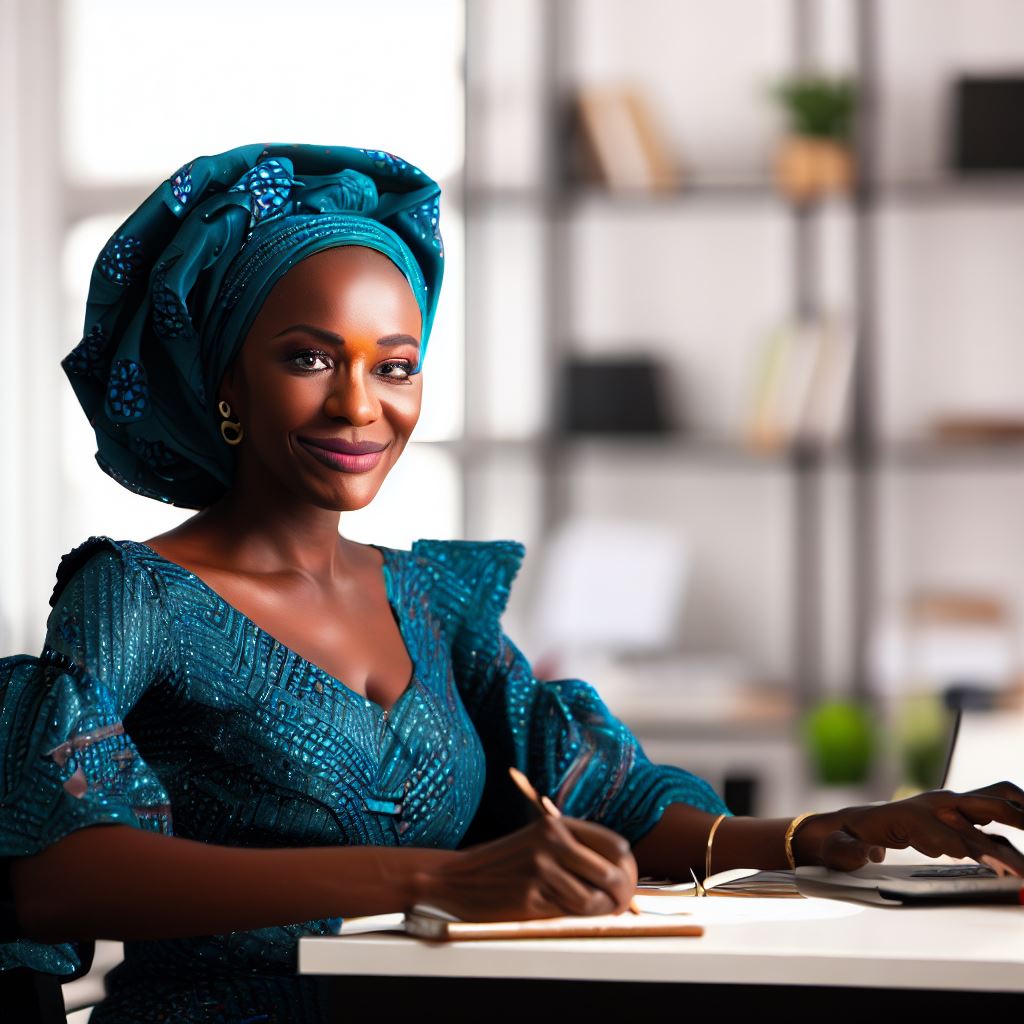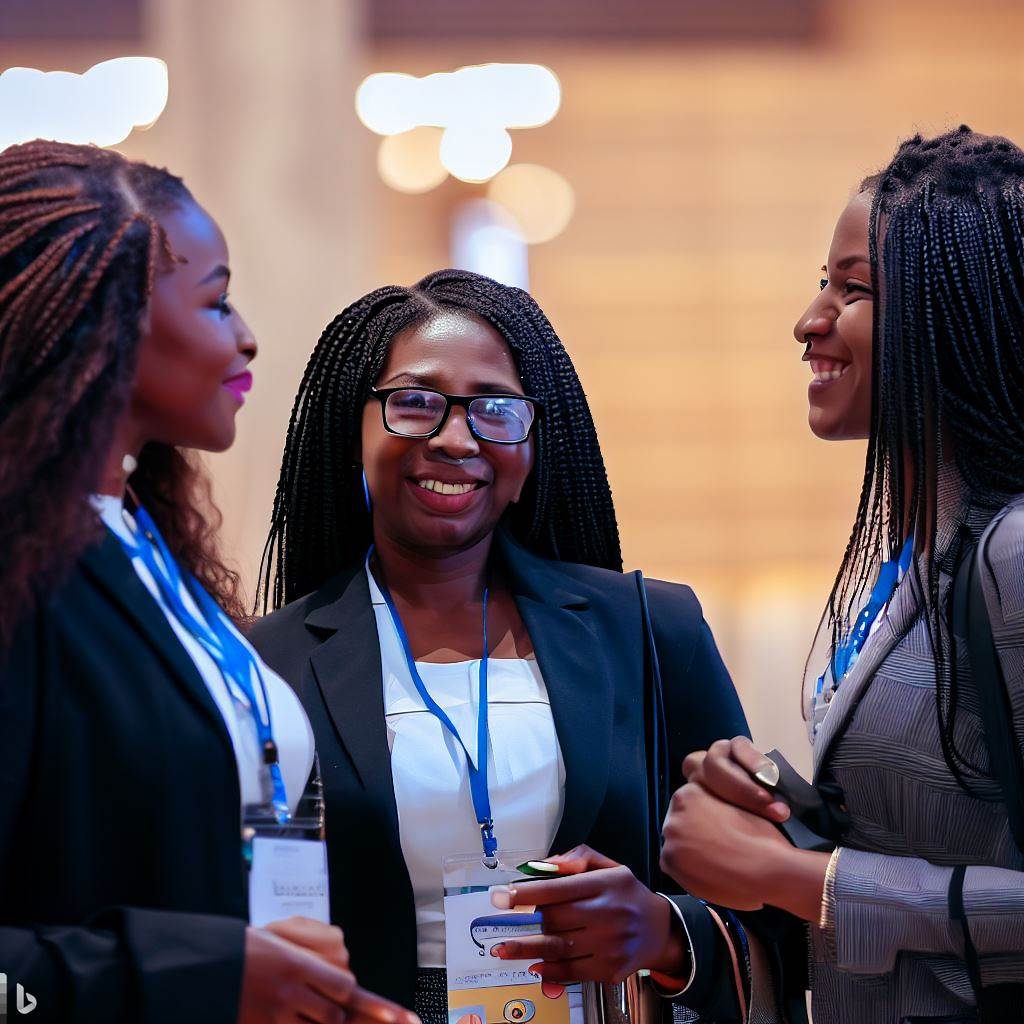Introduction
Event planning in Nigeria is heavily influenced by the country’s rich and diverse culture.
In order to successfully plan and execute events in Nigeria, it is crucial to have a deep understanding of the cultural aspects that shape the preferences and expectations of the local population.
This post will delve into the various ways in which culture impacts event planning in Nigeria, highlighting the significance of incorporating cultural elements into the planning process to ensure successful and meaningful events.
Cultural Significance in Event Planning
A. Definition of culture and its role in society
Culture encompasses the beliefs, values, customs, behaviors, and practices shared by a group of people.
It shapes our identity and provides a sense of belonging, influencing how we perceive and interact with the world.
In society, culture serves as a framework that guides individuals’ actions and behaviors, fostering a sense of community and shared values.
B. Relevance of culture in event planning
In event planning, culture plays a vital role as it is the foundation upon which events are designed and executed.
Taking into account the cultural background of the target audience is essential to create meaningful and memorable experiences.
By acknowledging cultural nuances and sensitivities, event planners can foster inclusivity, enhance engagement, and ensure that participants feel a sense of connection and belonging.
C. The importance of incorporating cultural elements into events
Incorporating cultural elements into events helps to preserve and celebrate cultural heritage, promoting diversity and cultural exchange.
By showcasing traditions, rituals, music, dance, clothing, or cuisine, event planners can create an immersive experience that educates and entertains attendees.
This cultural immersion fosters a deeper understanding and appreciation of different cultures, fostering respect and tolerance among individuals.
D. Examples of how culture shapes event planning decisions in Nigeria
Nigeria, with its rich cultural diversity, provides various examples of how culture influences event planning decisions.
For instance, during weddings, traditional customs such as the “Introduction Ceremony” and “Engagement Ceremony” are meticulously planned and executed to honor the couple’s cultural heritage.
These ceremonies often include specific attire, dances, and rituals that celebrate the union in accordance with cultural norms.
Religious events in Nigeria, such as Eid celebrations or Christmas festivities, also reflect the influence of culture.
Event planners consider the religious customs, dietary requirements, and cultural practices associated with these occasions.
They ensure that the events are appropriate and respectful, catering to the religious and cultural sensitivities of attendees.
Furthermore, festivals and traditional ceremonies hold great cultural significance in Nigeria.
Events like the Ojude Oba festival in Ogun State or the Argungu Fishing Festival in Kebbi State highlight specific cultural practices, showcase traditional attires, and feature indigenous performances.
Event planners carefully design these events to capture the essence of Nigerian culture and provide a platform for cultural exchange and promotion.
Basically, culture is an integral aspect of event planning in Nigeria.
Acknowledging and incorporating cultural elements into events play a significant role in creating meaningful experiences.
By understanding the cultural background of the target audience and respecting their traditions, event planners can foster inclusivity, diversity, and promote cultural exchange.
Ultimately, cultural significance in event planning helps preserve and celebrate Nigeria’s rich cultural heritage.
Read: The Role of Technology in Nigeria’s Event Planning Field
Cultural Factors Affecting Event Planning in Nigeria
A. Diversity of Nigerian Culture
- Ethnicity, Languages, and Traditions: Nigeria is a melting pot of over 250 ethnic groups, each with its unique languages, traditions, and customs. Event planners must consider this rich diversity when crafting event themes, decor, and activities.
- Impact on Event Themes, Decor, and Activities: Incorporating elements from various ethnic backgrounds can enhance the cultural richness of an event. For example, Yoruba, Igbo, and Hausa traditions might inspire decorations, music, and dance performances.
B. Religious Beliefs and Practices
- Influence on Event Scheduling and Dates: Nigeria’s major religions, Christianity and Islam, dictate specific holy days and periods. Event planners must schedule around these dates to ensure attendance and respect for religious practices.
- Dietary Considerations and Food Options: Different religious beliefs influence dietary choices. Muslims, for instance, observe halal dietary laws, affecting menu planning for events like weddings and celebrations.
C. Social Norms and Customs
- Traditional Greetings and Dress Codes: Nigerian events often begin with elaborate greetings, which vary by ethnicity. Dress codes also vary, from colorful traditional attire to formal Western clothing.
- Gender Roles and Protocols: Understanding gender roles is essential. For instance, certain events may involve separate seating arrangements or specific roles for men and women, which event planners must accommodate.
D. Economic Considerations
- Socioeconomic Disparities and Their Impact on Event Planning: Nigeria’s economic disparities are substantial. Event budgets must consider the income levels of participants, ensuring inclusivity and accessibility.
- Budget Allocation Across Different Cultural Aspects: Event planners should allocate budgets thoughtfully, prioritizing aspects that resonate most with the target audience. This might mean investing more in cultural performances or traditional decorations.
Generally, successful event planning in Nigeria requires a deep appreciation of its diverse cultures, religious practices, social norms, and economic realities.
By embracing these cultural factors, event planners can create memorable and respectful experiences that celebrate Nigeria’s rich heritage.
Read: Certification for Events Coordinators in Nigeria: A Guide

Challenges and Opportunities in Cultural Event Planning
When planning cultural events in Nigeria, event planners face both challenges and opportunities.
These are highlighted below:
A. Balancing traditional and modern elements
Event planners in Nigeria must find a delicate balance between incorporating traditional elements that reflect the country’s rich cultural heritage and incorporating modern elements that appeal to a more contemporary audience.
This requires careful consideration and understanding of both the older and younger generations.
1. Addressing the generation gap
Event planners must consider the differing tastes and preferences of different age groups.
They need to create events that resonate with older attendees while also attracting younger generations.
This can be achieved by incorporating traditional music, dances, and art forms in a modern and engaging way.
2. Navigating cultural evolution and globalization
The influence of globalization and changing cultural dynamics adds another layer of complexity to event planning in Nigeria.
Event planners must stay updated with the latest trends and adapt their events to reflect the evolving cultural landscape while still staying true to Nigerian traditions.
This requires a careful balance between tradition and modernity.
B. Overcoming potential conflicts and misunderstandings
Event planners must be mindful of potential conflicts and misunderstandings that may arise due to cultural differences.
Effective communication and cultural sensitivity are key to avoiding misunderstandings and ensuring a successful event.
1. Communication breakdowns
Language barriers and misinterpretations can create communication breakdowns that hinder the planning and execution of cultural events.
Event planners must find ways to bridge these gaps, such as utilizing interpreters or providing bilingual event materials, to ensure effective communication with all participants.
2. Respecting cultural sensitivities
Nigeria is a culturally diverse country with numerous ethnic groups, each with its unique customs and traditions.
Event planners must be respectful of these differences and avoid appropriating or misrepresenting any cultural practices.
Cultural sensitivity and research are crucial to avoid offending attendees and promoting inclusivity.
C. Capitalizing on cultural diversity for creative event ideas
Nigeria’s cultural diversity offers event planners a wealth of opportunities for creative event ideas that celebrate the country’s heritage and foster cultural exchange.
1. Showcasing Nigeria’s rich cultural heritage
Event planners can highlight Nigeria’s diverse cultural heritage by incorporating traditional music, dances, fashion, and cuisine into their events.
This helps promote a sense of pride among attendees and educates them about the country’s rich cultural history.
2. Promoting cultural exchange and understanding
Cultural events provide a platform for people from different backgrounds to come together, fostering cultural exchange and understanding.
Event planners can organize interactive activities and workshops that encourage attendees to engage with different cultures, promoting unity and appreciation for diversity.
Essentially, event planning in Nigeria’s cultural context presents both challenges and opportunities.
By striking a balance between tradition and modernity, overcoming potential conflicts, and capitalizing on the country’s cultural diversity, event planners can create memorable and inclusive experiences that celebrate Nigerian culture while promoting cultural exchange and understanding.
Read: Top Skills You Need to Be an Events Planner in Nigeria
Success Stories and Best Practices
Cultural events in Nigeria have shown great potential in promoting the richness and diversity of the country’s heritage.
The success stories and best practices of these events offer valuable insights into how cultural elements can be effectively incorporated and managed in event planning.
A. Case studies of successful cultural events in Nigeria
1. Effective incorporation of cultural elements
One notable success story is the “Carnival Calabar” held annually in Calabar, Cross River State.
This event showcases the best of Nigerian culture through vibrant parades, traditional dances, and costumes.
The organizers have successfully integrated local cultural elements, such as masquerades and storytelling, to create an immersive experience for participants and spectators.
Another example is the “Lagos International Jazz Festival.”
This event celebrates Nigeria’s love for music and brings together renowned jazz artists from around the world.
By incorporating traditional Nigerian instruments and rhythms into the performances, the festival showcases the fusion of local and international music, attracting a diverse audience and promoting cultural exchange.
2. Lessons learned and key takeaways
These successful cultural events in Nigeria offer important lessons for event planners.
Firstly, it is crucial to conduct proper research and understand the local cultural nuances before planning an event.
This includes studying traditional practices, customs, and beliefs to ensure respectful representation and avoid cultural appropriation.
Secondly, engaging with local communities and involving them in the event planning process is key to its success.
By collaborating with local artists, performers, and craftspeople, event planners can ensure authenticity and create a sense of ownership among the local community.
This fosters a deeper connection with the cultural heritage and encourages community participation.
B. Tips for event planners in Nigeria
1. Building cultural competency
Event planners should invest time and effort in understanding and appreciating the cultural diversity within Nigeria.
This includes attending cultural festivals, visiting museums, and engaging with local cultural experts to gain a comprehensive understanding of the customs and traditions of different ethnic groups.
This knowledge will help event planners make informed decisions and create culturally inclusive experiences.
2. Collaborating with local communities and experts
To ensure the successful incorporation of cultural elements, event planners should actively seek the expertise and involvement of local communities.
This can be done by consulting cultural experts, partnering with local artisans and performers, and involving community leaders in the decision-making process.
By promoting collaboration and inclusivity, event planners can create authentic and memorable experiences for attendees.
In general, the success stories and best practices of cultural events in Nigeria illustrate the impact that culture can have on event planning.
By effectively incorporating cultural elements and following key tips such as building cultural competency and collaborating with local communities, event planners can create unique and immersive experiences that celebrate Nigeria’s rich cultural heritage.
Read: Leading Event Planning Trends in Nigeria in 2023
Conclusion
Cultural aspects must be considered, cultural sensitivity is crucial, and understanding the local customs is important.
It is significant to acknowledge and respect cultural aspects in event planning to ensure inclusivity and avoid any offense or misunderstanding.
Future event planners should embrace cultural diversity as it leads to more meaningful and memorable events, enhancing the overall experience for attendees.




